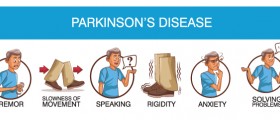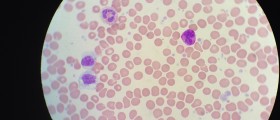
Essential tremor is a neurological disorder that typically features with shaking hands or other parts of the body. These movements are involuntary and simply cannot be controlled. The condition affects approximately 1 in 20 people. Essential tremor is the most common form of movement disorder.
More on Essential Tremor
This is a rhythmic tremor and develops only when the affected muscle (a group of muscles) is exerting effort. It does not occur at rest. The intensity of the tremor intensifies with any sort of physical and mental stress. Furthermore, tremor becomes even more intensive in 'performance' situations. This can be easily explained by the increased stress that occurs during such situations.
Essential tremor usually affects more than one family member which makes it dominant in inheritance. Still, it is even possible that the condition develops even in people with no family history of essential tremor. The problem may start at any age. However, it generally affects older people. Tremor basically affects hands and arms while other parts of the body such as larynx, tongue and eyelids are not so commonly involved.
What Causes Essential Tremor?
The cause of essential tremor is unknown, hence it is usually classified as idiopathic tremor. There is no obvious and noticeable structural abnormality in the nervous system in patients. Still some scientists have shown that there are neurochemical and brain structure abnormalities that may be characteristic for people suffering from essential tremor.
Today many scientists debate on whether essential tremor is connected with Parkinson's disease and whether it should be considered a form of parkinsonism. Yes, there is an increased chance that people suffering from essential tremor will develop Parkinson's disease, but this definitely does not mean that these conditions will in all cases occur together or that they are related.
Diagnosing Essential Tremor and Treatment
Diagnosis of essential tremor is based on clinical characteristics of the disease. It is essential to exclude other potential causes of tremor (excessive intake of caffeine, drugs, hyperthyroidism etc. ) before setting definitive diagnosis. Essential tremor tends to intensify with fatigue, strong emotions, hunger, cold and other factors.
Even though this is not a life-threatening condition, essential tremor may progress in time and cause serious disability. The condition can significantly interfere in performing even the simplest daily activities such as feeding, dressing and activities of personal hygiene.
Treatment for essential tremor includes several medications such as tranquilizers, beta-blockers and antiepileptic drugs. Some patients are treated with botulinum toxin injections and there is also a chance for some to undergo deep brain stimulation.













_f_280x120.jpg)



Your thoughts on this
Loading...